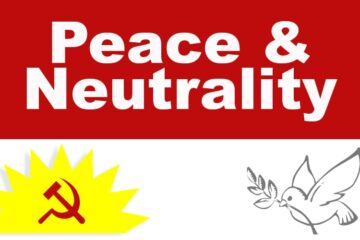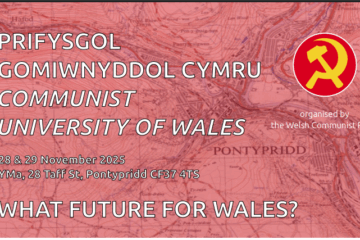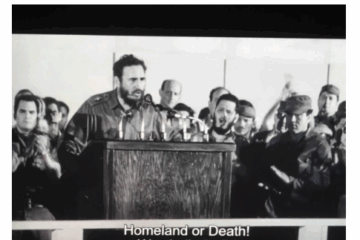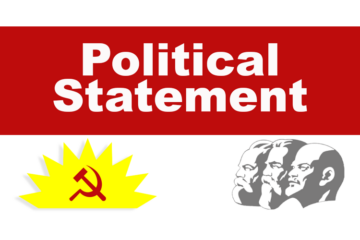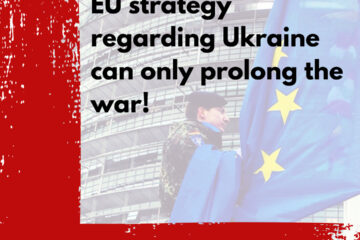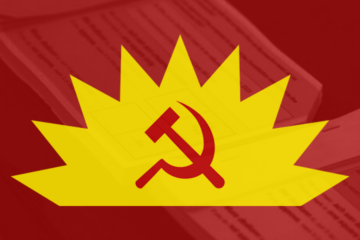Six County elections indicate unionism divisions and the growth of Sinn Féin.
The outcome of the elections to the Northern Ireland Assembly should not come as a surprise to anyone who pays the least bit of attention to one of the last remnants of the British Empire.
With Sinn Féin securing 29% of the popular vote, 250,398 first preference votes and winning the largest number of seats (27) to become the largest party in the Assembly Sinn Féin leader Michelle O’Neill will be entitled to be nominated to become First Minister. The DUP secured 21.3% & 25seats.
That Sinn Féin is now the largest elected party in the enclave has sent a huge shock-wave through the unionist political leadership as well as through the southern political establishment.
For the first time since the founding of the gerrymandered northern statelet established under the control and direction of British imperialism over a century ago unionism is no longer the largest party nor the deciding force in Six County politics.
Following on the election result unionism has reacted in its default mode of threatening violence to prevent change, and its imperial masters in London will be only too ready to manipulate those threats to maintain a unionist veto on anything they consider challenging to their interests..
Political unionism has always used the dog whistle of “protect the Union” or “not an inch” dressed up in sectarian rhetoric and backed up by extreme violence against the nationalist minority to hold the unionist-orientated people in check.
A number of factors have brought about this election result. Unionism remains in a political, economic and cultural cul-de-sac, still hankering after a lost relationship to its former imperial benefactor.
Unionism has down the decades fed generation after generation of its political support base the belief that they would always be top dog, that there would be, nor could there be, any change in who governs the Six Counties.
They bred a mentality of “no surrender” which was to ensure conformity and obedience and a show of force against any nationalist resistance. Britain was only too willing to let the situation pertain so long as its interests in Ireland were secure.
Today the demographics have changed with a growing nationalist population and a declining unionist one. In addition, the nationalist people are no longer the cowed and battered-down populace they once were. They are politically and culturally much more confident and surer of themselves.
Unionism’s constant display of the settler colonial mentality of “no surrender” has left many of their supporters confused politically and culturally locked deeply into the past of a settler colonial mindset, a mind-set not too dissimilar to that of the Zionist settlers in Palestine, the white minority in South Africa or the white supremacists in the USA.
Today British imperialism has other allies and interests to cultivate and develop in Ireland.
British imperialism have succeeded in locking radical republicanism into institutions that are still controlled by the British and by whose outcomes they exert significant control, locking them into a political process around some vague idea of “consent”, an exercise some would call a “pacification process”.
British imperialism is pursuing more strategic interests with the ruling class of the South, a relationship far more important to their overall imperialist strategy in Ireland.
The southern ruling class are central to securing the triple lock of US, EU and British imperialism.
Unionism stood in the elections on two main planks, firstly to abolish the “Northern Ireland Protocol” (part of the Brexit process) and secondly to end the legal statutory obligation that the largest party in the Assembly automatically gets the office of First Minister. They have clearly failed on both strategic issues.
Once again they have demonstrated their backward anti-democratic world view.
The other big winner in the elections was the Alliance Party which secured 13.5% (17 seats) of the first preference votes. The Alliance secured a greater number of votes from the old Ulster Unionist Party (11.2% – 9 seats) fighting on a pro-Protocol pro- EU platform with the unionist business community and the professional classes switching to vote in their own material self- interest, a clear indication that unionism continues to fracture and fragment.
The DUP lost votes to the Traditional Unionist Values Party, a party even more entrenched in bigotry and pro-imperialist ideology.
The election result has also not been welcomed by the Dublin establishment. Fianna Fáil, Fine Gael and the Labour Party canvassed for the SDLP (8 seats) while the Dublin-based media promoted the SDLP against Sinn Féin.
While the nationalist people in the Six Counties may take some small satisfaction at the discomfort of unionist politicians, elements on the “left” within the Six Counties lamented that real politics did not feature in the election debates. We have to ask the question what is real politics?
What they suggest is that social and economic demands and struggles take place in some sort of void. Struggles devoid of political context which ignore concrete material conditions are doomed to failure. They also imply that a democratic soliton to the question of imperial interference is of secondary importance rather than being primary.
What is clear is there is no lasting stable solution to be found within the political structures created by and bolstered by imperialism.
Partition has been the major road block to the national democratic struggle of the Irish people.
It is only by ending the partition of Ireland and the allowing the people of Ireland to decide their future that true democracy and peace can be built.
The ending of partition of Ireland would also be a major democratic advance for progressive forces in Britain itself.
The strategy of the Communist Party of Ireland is to develop maximum economic, political, social relation between North and South and to shrink the East-West controls from London, thereby providing greater potential for national working-class unity on a national democratic basis.
To link and develop all-Ireland struggles in areas like health, housing, industrial development, social and workers rights. To strengthen the national content in the class struggle and the class content in the national struggle.
Eugene Mc Cartan
General Secretary



